Dr. Can Van Luc, economist , member of the National Monetary and Financial Policy Advisory Council.
According to the assessment from the Ministry of Finance on the summary of the implementation of Law No. 69/2014/QH13, this Law still has many shortcomings and limitations, and the actual operations of enterprises with State capital investment have changed a lot in recent times in terms of form, scale, corporate governance...
In Notice No. 1354/TB-TTKQH dated August 15, 2022, the National Assembly Standing Committee agreed on the necessity of developing and submitting to the National Assembly draft Law No. 69/2014/QH13 (amended) to promptly institutionalize the Party's viewpoints and policies, implement the requirements in the National Assembly's resolutions, and meet practical requirements. At the same time, to ensure the quality of the draft Law, the National Assembly Standing Committee proposed to continue researching, summarizing practices, supplementing and perfecting the content of policies in the proposal to develop the Law to ensure full institutionalization of the Party's policies and guidelines, overcoming shortcomings, limitations and inadequacies in the management of State capital, especially related to the following issues: Equitization, divestment of State capital in enterprises; Activities of the Fund to support enterprise arrangement and development; Separating and clearly defining the function of representing the owner of State assets and capital from the function of State management and business administration of enterprises; Summarizing and evaluating the model of the State Capital Management Committee at enterprises; Reviewing to ensure the consistency and uniformity of the legal system, including laws being studied for amendment and supplementation such as the Land Law, the State Budget Law and other related laws.
"Therefore, in order to implement the policies and orientations of the Party and the State, the direction of the National Assembly Standing Committee mentioned above and to improve the effectiveness of management and investment of State capital in enterprises, to meet the new requirements of management practices and international integration, to overcome difficulties, obstacles and shortcomings, to ensure the consistency and unity of the Vietnamese legal system, it is necessary to fundamentally and comprehensively amend to promulgate the Law on Management and Investment of State Capital in Enterprises to replace Law No. 69/2014/QH13", the Ministry of Finance affirmed.
Independent financial expert Nguyen Ha shared that Law No. 69 has not separated the function of representing the owner's capital from the function of managing the enterprise. This conflict of interest has raised the issue that the authorities consider the capital and assets of enterprises with State capital as State assets for management. This violates the corporate governance principles of the Organization for Economic Cooperation and Development (OECD), as well as the Civil Code on equality in ownership roles, the rights of enterprises in operating autonomy, business decisions, etc.; at the same time, it does not meet the requirements set forth in Resolution 12-NQ/TW dated June 3, 2017 of the 5th Conference of the Central Executive Committee of the Party, term XII (abbreviated as Resolution 12/2017).
This limitation has caused the large flow of State capital to be in a state of lack of dynamism and creativity, even being blocked and losing in the production and business activities of State-owned enterprises. The fact that the business management activities of State-owned enterprises are under the close direction and intervention of many State agencies actually causes financial losses to State-owned enterprises, which affects the effectiveness of monetary policy, fiscal policy and asset quality of the commercial banking system.
This situation also contributes to slowing down the equitization process of State-owned enterprises when private capital flows are not treated equally with State owners in equitized enterprises with State capital. Therefore, the profitability and debt repayment capacity of State-owned enterprises will have a strong impact on the effectiveness of monetary policy in general and the performance of commercial banks in particular.
In addition, the lack of consistency between Law No. 69 and current laws (Civil Code 2015, Enterprise Law 2020, Public Investment Law 2019, Investment Law 2020, Inspection Law 2010...) is a barrier to development and innovation. For example, the definition of the subject of Law No. 69/2014/QH13 is not yet comprehensive as stipulated in Article 88 of the Enterprise Law, or Resolution 12/2017; the contradiction between Law No. 69/2014/QH13 on the right of owners to intervene in business activities and the Civil Code...
In the definition of State capital, Law No. 69 also considers the debt repayment obligation of enterprises to the State as a source of capital; the allocation mechanism and process of allocating State capital to State-owned enterprises overlap and lack clarity, causing a large amount of State capital to be unable to be allocated to State-owned enterprises as planned.
Dr. Can Van Luc, economic expert, member of the National Financial and Monetary Policy Advisory Council, emphasized that the process of amending the Law should avoid focusing too much on specific cases, but the regulations should be calculated and considered in general, focusing on core issues in macro management; widely soliciting opinions from affected subjects and having appropriate acceptance. At the same time, he said that it is necessary to clarify the mindset of State capital management in enterprises.
According to Dr. Can Van Luc, it is necessary to innovate in the direction of capital management and investment, not just capital use. In that case, capital investment business must accept both losses and profits, and be more market-oriented. The effectiveness of capital investment needs to be viewed as a whole instead of each transaction. In addition, it is necessary to increase the transparency and professionalism of both management agencies and enterprises (capital managers and capital users); it is necessary to have a set of criteria to evaluate the effectiveness of capital use and resource investment to build a database.
Ms. Pham Thuy Chinh, Vice Chairwoman of the National Assembly's Finance and Budget Committee.
Ms. Pham Thuy Chinh - Vice Chairwoman of the National Assembly's Finance and Budget Committee said that the important legal corridor for the management and use of State capital and assets in enterprises is Law No. 69 issued in 2014. In the process of implementing the Law, in addition to the achieved results, there have also been some shortcomings and limitations that have affected the operations of enterprises as well as not meeting the Party's new orientations and policies on the State-owned enterprise sector.
The Vice Chairman of the National Assembly's Finance and Budget Committee pointed out that the scope of the Law's regulation is not really separate, and has not clearly distinguished the State management function from the function of State capital asset ownership and the business administration function of enterprises. In addition, the State capital investment in enterprises has not been proactive, and there is no corridor for enterprises to operate flexibly and promptly according to market signals...
Regarding the shortcomings, limitations and inadequacies of Law No. 69/2014/QH13, Ms. Pham Thuy Chinh emphasized: "It is necessary to fundamentally and comprehensively amend this Law to improve the effectiveness of management and investment of State capital in enterprises, ensuring the consistency and unity of the legal system". Because this is a very difficult law, having to solve many goals at the same time, Ms. Pham Thuy Chinh hopes that delegates at the Workshop will give specific and practical opinions so that the draft Law dossier can be completed in the best way.
Mr. Dau Anh Tuan, Deputy General Secretary, Head of Legal Department, Vietnam Federation of Commerce and Industry (VCCI).
Regarding this issue, Mr. Dau Anh Tuan, Deputy General Secretary, Head of the Legal Department, Vietnam Federation of Commerce and Industry (VCCI) commented that, besides the positive results achieved, Law No. 69/2014/QH13 still has unclear points such as not clearly defining and separating the State management function from the function of ownership of State assets and capital and the business administration function of enterprises; not separating State capital from enterprise capital, the rights of representatives of State capital ownership from the right to business autonomy of enterprises...
This has caused many difficulties for corporations and state-owned enterprises in their business operations. On the other hand, the management mindset of having to preserve capital has created many hesitations in doing business, missing many opportunities. Stating that the draft Law is of great significance to the development of the economy, VCCI Deputy Secretary General Dau Anh Tuan hopes that the amendment of the Law will open up and effectively exploit the huge state resources located in enterprises.
Mr. Dau Anh Tuan said that the amendment of the Law needs to ensure the principle that State capital investment is identified as the enterprise's asset, separate the functions of capital management and capital ownership, and improve the quality of corporate governance to meet international standards. At the same time, he emphasized that the content of the Law needs to continue to clarify the information disclosure of enterprises; the standards of information transparency of enterprises need to be focused on and expressed more clearly. To reform State-owned enterprises, there needs to be a legal corridor to ensure the rights of private investors, increase attractiveness, and attract the participation of the private sector.
Analyzing the problems in the current Law, Prof. Dr. Hoang Van Cuong, member of the National Assembly's Finance and Budget Committee, said that the regulations on capital mobilization; investment in construction, purchase and sale of assets of enterprises according to the asset value under the decision of competent authorities as when investing capital in enterprises are confusing capital and assets; confusing the rights of the owner with the production and business rights of the enterprise operator. This is the fundamental cause that binds inactive State-owned enterprises, and at the same time, does not assign responsibility in the management and use of State assets at enterprises. Along with that, the current Law does not clearly distinguish the functions of State asset management at enterprises and State management of enterprise activities.
Therefore, according to Prof. Dr. Hoang Van Cuong, the Law needs to establish a mechanism to clearly define who is the owner representative of assets at State-owned enterprises; the rights and responsibilities of the owner representative of assets at enterprises; clearly define the State management of enterprise activities; the rights and responsibilities of the person operating the production and business activities of State-owned enterprises; the mechanism for monitoring and evaluating the results of the implementation of rights and responsibilities of the owner representative and the enterprise operator; the mechanism for organizing and operating the enterprise's business management apparatus and the internal supervision mechanism of the enterprise...
Source: https://www.pvn.vn/chuyen-muc/tap-doan/tin/4cededb0-e5b3-4474-8b86-5785e1b5ae6d




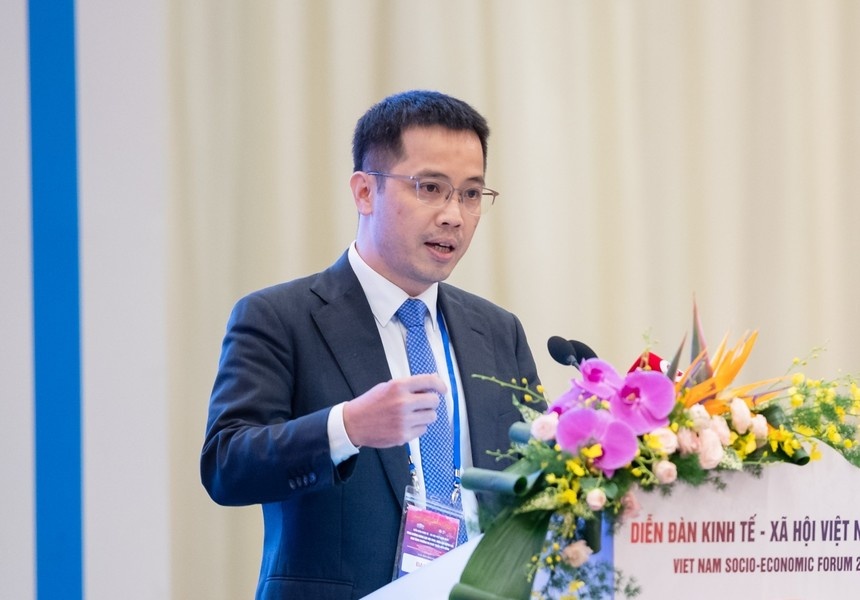



![[Photo] Party and State leaders visit former President Tran Duc Luong](https://vphoto.vietnam.vn/thumb/1200x675/vietnam/resource/IMAGE/2025/5/24/960db9b19102400e8df68d5a6caadcf6)
![[Photo] Ho Chi Minh City holds funeral for former President Tran Duc Luong](https://vphoto.vietnam.vn/thumb/1200x675/vietnam/resource/IMAGE/2025/5/24/9c1858ebd3d04170b6cef2e6bcb2019e)









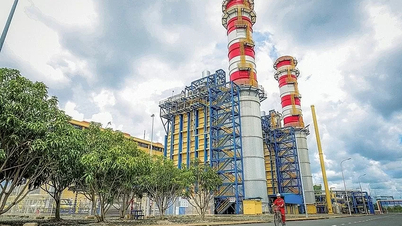











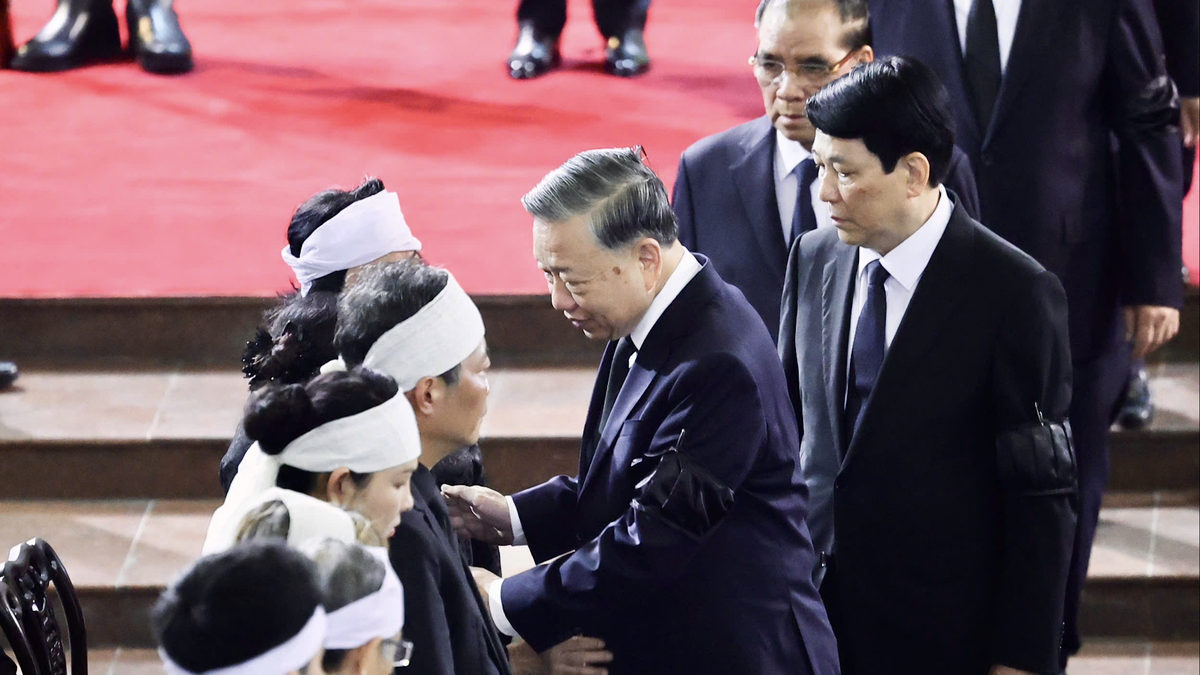
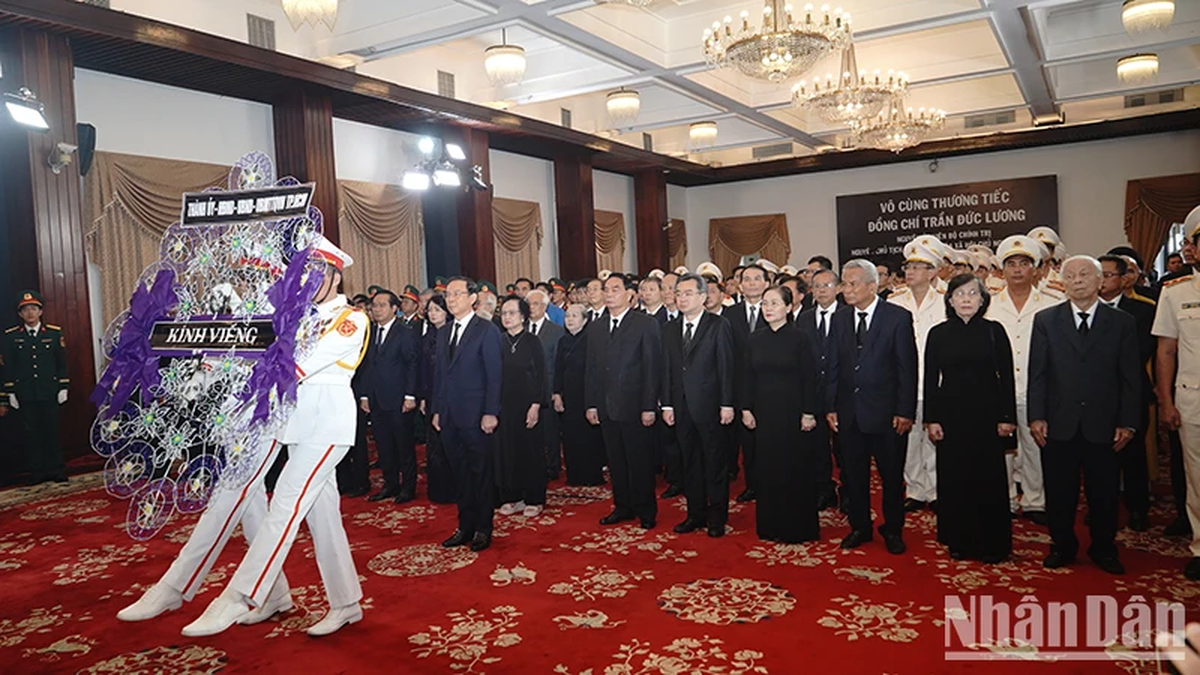

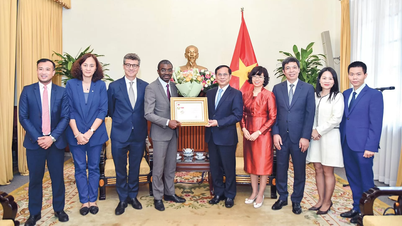









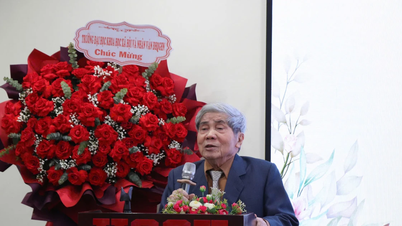

















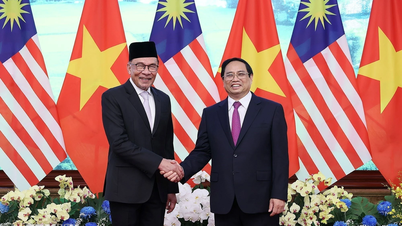















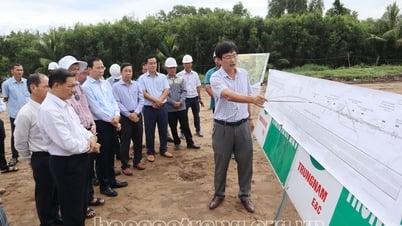

















Comment (0)